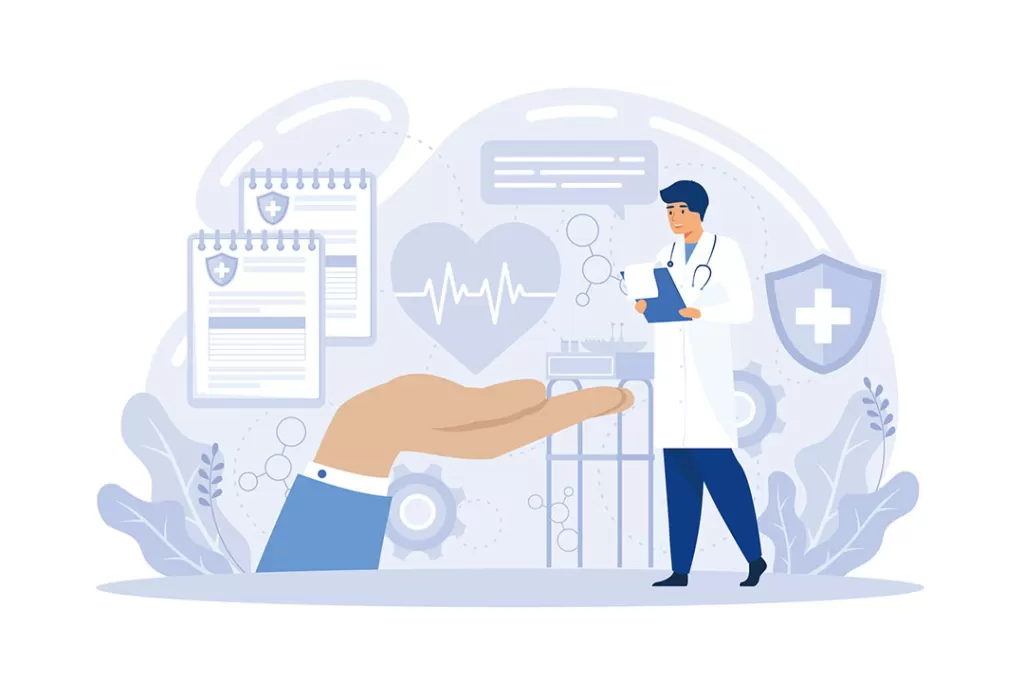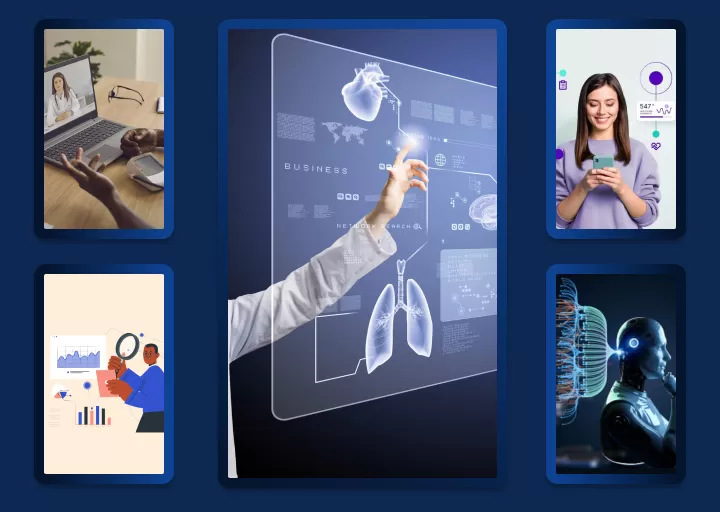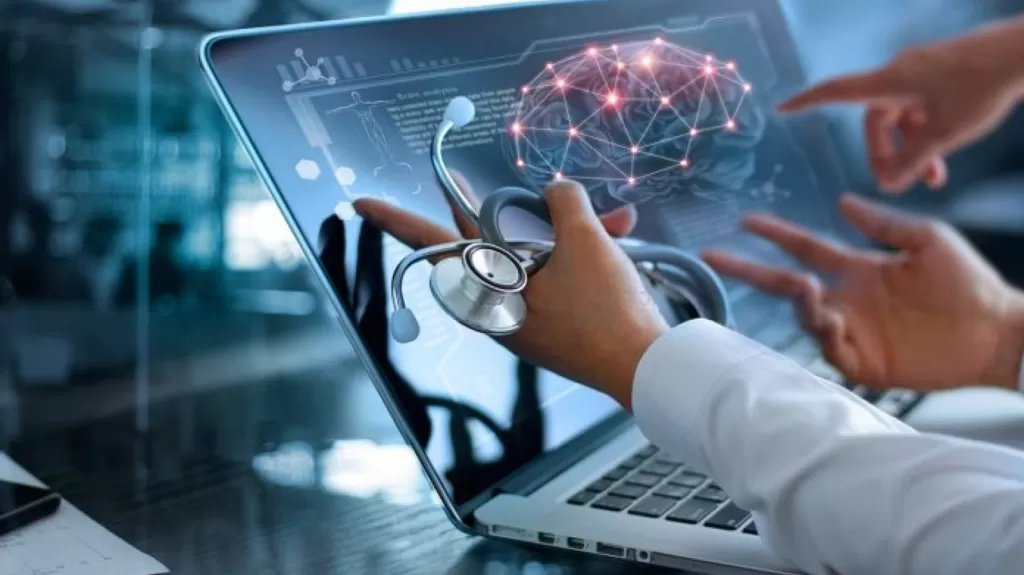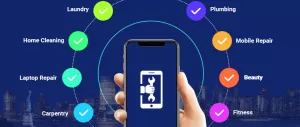Written By:
Scott McAuley
Scott is the IT Director of Texas Management Group, and has been in the IT industry for 25 years.
Healthcare is becoming more tech-driven than ever, and the right software can revolutionize how medical professionals deliver care. But with so many options, which tools are essential for 2024?
From managing patient records to improving diagnosis, the types of healthcare software available today are as diverse as the industry itself.
In this article, we’ll explore 15 must-have software solutions transforming healthcare, from electronic health records (EHR) systems to telemedicine platforms.
Ready to discover which innovations are shaping the future of healthcare? Let’s dive in!
Key Takeaways
- Healthcare software enhances efficiency by automating processes, allowing medical professionals to focus more on patient care and outcomes.
- Telemedicine expands access to care, enabling virtual consultations, e-prescriptions, and remote patient monitoring for improved healthcare delivery.
- EHR systems streamline records, providing secure, easily accessible patient information to improve decision-making and enhance continuity of care.
- Medical diagnosis software leverages AI to assist in diagnosing conditions, offering healthcare providers advanced tools for better patient outcomes.
- Healthcare software promotes scalability, allowing facilities to adapt to growth, integrate new technologies, and improve overall operational efficiency.
Table of Contents
What is Healthcare Software?

Healthcare software refers to a broad range of applications aimed at improving hospital operations, patient care, and remote health management.
Unlike medical software, which focuses solely on patient monitoring and diagnostics, healthcare software covers electronic health records (EHR), scheduling, billing, and logistics.
As healthcare evolves, the demand for seamless software solutions continues to grow, making it essential for modern medical practices.
This technological shift enhances efficiency and adaptability, driving widespread adoption across healthcare sectors.
15 Types of Healthcare Software
Healthcare software in 2024 is revolutionizing the way care is managed and optimized, equipping providers with tools to improve efficiency, patient care, and data safety.
Here’s a brief overview of the 15 most impactful healthcare software types:

1. Electronic Health Records (EHR) Software
Stores patient data, medical history, medications, and notes. It replaces paper charts and enhances data sharing across healthcare providers.
- Examples: Epic Systems, Cerner
2. Telemedicine Software
Enables virtual consultations, e-prescriptions, and remote patient monitoring, increasing access to care.
- Examples: Teladoc Health, Amwell
3. Hospital Management Software (HMS)
Streamlines hospital operations, managing everything from patient data to resource allocation.
- Examples: GE Healthcare, Siemens Healthineers
4. Health Tracking Apps
Tracks fitness, diet, and wellness metrics through mobile devices and wearables for personalized health management.
- Examples: Fitbit, MyFitnessPal
5. e-Prescribing Software
Allows providers to issue electronic prescriptions, reducing errors and simplifying the prescription process.
- Examples: Surescripts, DrFirst
6. Remote Patient Monitoring (RPM) Software
Monitors patients outside traditional settings using wearable devices for chronic disease management.
- Examples: Philips Healthcare, Vivify Health
7. Medical Diagnosis Software
Uses AI to assist healthcare providers in diagnosing conditions by analyzing patient data and symptoms.
- Examples: IBM Watson Health, VisualDx
8. VR Training & Simulation Software
Provides virtual environments for medical training and simulations, enhancing learning and skill development.
- Examples: Health Scholars, Oxford Medical Simulation
9. Healthcare Billing Software
Automates billing processes, tracks payments, and reduces errors in financial operations.
- Examples: AdvancedMD, Kareo
10. Medical Image Analysis Software
Processes MRI and CT scans to create 3D models for accurate diagnoses and treatment planning.
- Examples: GE Healthcare, Siemens
11. Personal Health Record (PHR) Software
Allows patients to manage their health information, enhancing communication with providers and continuity of care.
- Examples: Apple Health Records, Healthspek
12. Laboratory Information Systems (LIS)
Manages lab tests, tracks samples, and ensures accurate reporting of patient results.
- Examples: Orchard Software, SCC Soft Computer
13. Radiology Information Systems (RIS)
Centralizes radiology data, manages imaging workflows, and integrates with hospital systems for accurate diagnoses.
- Examples: Merge (IBM Watson Health), GE Healthcare
14. Appointment Scheduling Software
Automates booking and scheduling of patient appointments, improving communication and efficiency.
- Examples: Zocdoc, Practice Fusion
15. Medical Equipment Management Software
Tracks medical equipment inventory and schedules maintenance to ensure operational efficiency.
- Examples: Attainia, Tego Systems
7 Benefits of Healthcare Software
Healthcare software is transforming the industry, enhancing efficiency and improving patient care.
Here are seven key benefits of using healthcare software:
| Benefit | Description |
|---|---|
| Enhanced Patient Care | Personalized care with real-time health monitoring for better outcomes. |
| Improved Efficiency | Automation reduces manual tasks, allowing more focus on patient care. |
| Better Data Management | Secure, easily accessible patient records for informed decision-making. |
| Improved Communication | Telehealth tools enhance communication, expanding access to remote care. |
| Regulatory Compliance | Ensures adherence to healthcare regulations, safeguarding patient privacy. |
| Cost Savings | Reduces operational costs by automating tasks and replacing paper systems. |
| Scalability and Flexibility | Adapts to facility growth, managing expansions and integrating new features. |
1. Enhanced Patient Care
Personalized care and real-time health monitoring improve treatment outcomes and patient satisfaction through continuous interaction and tailored care plans.
2. Improved Efficiency
Automation reduces manual work, streamlines administrative and clinical processes, and frees up more time for direct patient care.
3. Better Data Management
Secure, easily accessible digital records help healthcare providers maintain up-to-date information and make informed decisions quickly.
4. Improved Communication
Telehealth platforms break down communication barriers with messaging and video tools, expanding healthcare access to remote areas.
5. Regulatory Compliance
Healthcare software ensures adherence to regulations, safeguarding patient privacy and safety while reducing legal risks.
6. Cost Savings
Automation and digitization reduce operational costs, allowing funds to be redirected toward patient care and research.
7. Scalability and Flexibility
Healthcare software adapts to facility growth, managing service expansions smoothly and integrating new features seamlessly.
Conclusion
Healthcare software is transforming the medical landscape, offering solutions that streamline operations, improve patient care, and enhance communication.
From Electronic Health Records (EHR) systems to telemedicine platforms, these tools are revolutionizing the industry in 2024.
To stay competitive and efficient, adopting the right healthcare software is essential. Start by identifying the needs of your practice and exploring tools that enhance both patient outcomes and operational efficiency.
Ready to harness the power of healthcare technology? Dive deeper into these innovations and discover how they can benefit your organization today!
Let’s shape the future of healthcare together!
Looking for Tailored IT Solutions in Healthcare?
Visit our blog for software insights, and see how our IT Consulting Services bring targeted expertise to elevate patient care and practice management.
Contact us today to start transforming your tech!
FAQ
What is the Most Popular Healthcare Software?
Electronic Medical Record (EMR) systems like Epic and Cerner are among the most widely used healthcare software globally.
What is the Future of Healthcare?
The future of healthcare is expected to involve greater integration of technology, personalized medicine, telemedicine, and emphasis on preventive care and wellness.
How is Technology Changing the Future of Healthcare?
Technology is revolutionizing healthcare by enabling remote monitoring, telemedicine, precision medicine, AI-driven diagnostics, electronic health records (EHRs), and more efficient healthcare delivery systems.
What Computer Software is Used in Healthcare?
Healthcare software includes Electronic Health Records (EHR), Practice Management Systems (PMS), Telehealth platforms, Medical Imaging Software (PACS), and Health Information Exchange (HIE) systems.






